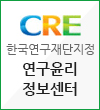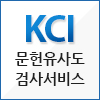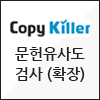No business is free from taking a risk. Escalation of commitment (EoC) in large and risky projects is
a critical component of managerial decision-making behavior that can affect both the growth and
profitability of firms. In this study we propose and test how EoC may differ based on antecedents such
as differences in national culture, manager’s ethical orientation, and agency conditions. Our empirical
analyses examine whether and how hospitality industry managers in China and in the USA differ in their
level of EoC. Our results indicate significant differences based on the individualism/collectivism dimension,
ethical orientation, and agency conditions. The results show differential effects of the various cultural
dimensions on EoC for the American and Chinese hospitality managers. In our study, managers’ views of
business ethics and agency conditions were found to be influential factors for the American managers,
although not quite relevant for Chinese managers. This result points to the need for developing and
refining conceptual and theoretical models that can be applicable to Asian managers to understand
decision-making based on cultural and ethical perspectives especially for firms expanding their operations
globally in the hospitality industry. So far, research has been conducted on EoC in the hospitality
industry. As a proposal for future research, the inclusion of the antecedents such as self-efficacy and locus
control and consequences such as firm performance can be implemented for an in-depth understanding of
EoC.
Key words : National culture, Ethical orientation, Escalation of commitment, Agency conditions.
a critical component of managerial decision-making behavior that can affect both the growth and
profitability of firms. In this study we propose and test how EoC may differ based on antecedents such
as differences in national culture, manager’s ethical orientation, and agency conditions. Our empirical
analyses examine whether and how hospitality industry managers in China and in the USA differ in their
level of EoC. Our results indicate significant differences based on the individualism/collectivism dimension,
ethical orientation, and agency conditions. The results show differential effects of the various cultural
dimensions on EoC for the American and Chinese hospitality managers. In our study, managers’ views of
business ethics and agency conditions were found to be influential factors for the American managers,
although not quite relevant for Chinese managers. This result points to the need for developing and
refining conceptual and theoretical models that can be applicable to Asian managers to understand
decision-making based on cultural and ethical perspectives especially for firms expanding their operations
globally in the hospitality industry. So far, research has been conducted on EoC in the hospitality
industry. As a proposal for future research, the inclusion of the antecedents such as self-efficacy and locus
control and consequences such as firm performance can be implemented for an in-depth understanding of
EoC.
Key words : National culture, Ethical orientation, Escalation of commitment, Agency conditions.











